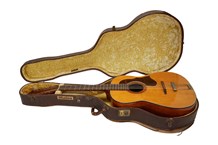The change is intended to introduce a new culture to legal disputes with the overriding objective of making justice more efficient, cost-effective and fair. Parties will be actively directed towards settlement before and during the hearing.
The new Civil Procedure Rules are a result of the 1996 Woolf Report on Access to Justice which was critical of many aspects of current practice, particularly in relation to the length and cost of many cases.
Under these rules the Court will have a duty to manage the conduct of a case in proportion to its importance and complexity.
Disputes involving art and antiques, where opinion is an inevitable ingredient, are likely to be affected by stricter rules on expert evidence which reinforce the expert witnesses’ duty to the Court, rather than to either of the parties involved and promote the concept of a single expert instructed by both parties.
Experts will be required to give solemn undertakings as to the content of their evidence and their qualification for giving it. They will also be required to reveal to the Court the instructions they received before compiling their evidence. Where more than one is involved, experts may be directed to meet and draw up a statement indicating where and why they disagree. There is also likely to be a greater reliance on written rather than oral evidence.
The exact nature of the expert’s role in the new system will only be established in practice.
New code for the courtroom
Law change will reshape civil cases UK: ALL Civil cases heard in English courts will be subject to a new code of conduct from April 26.




